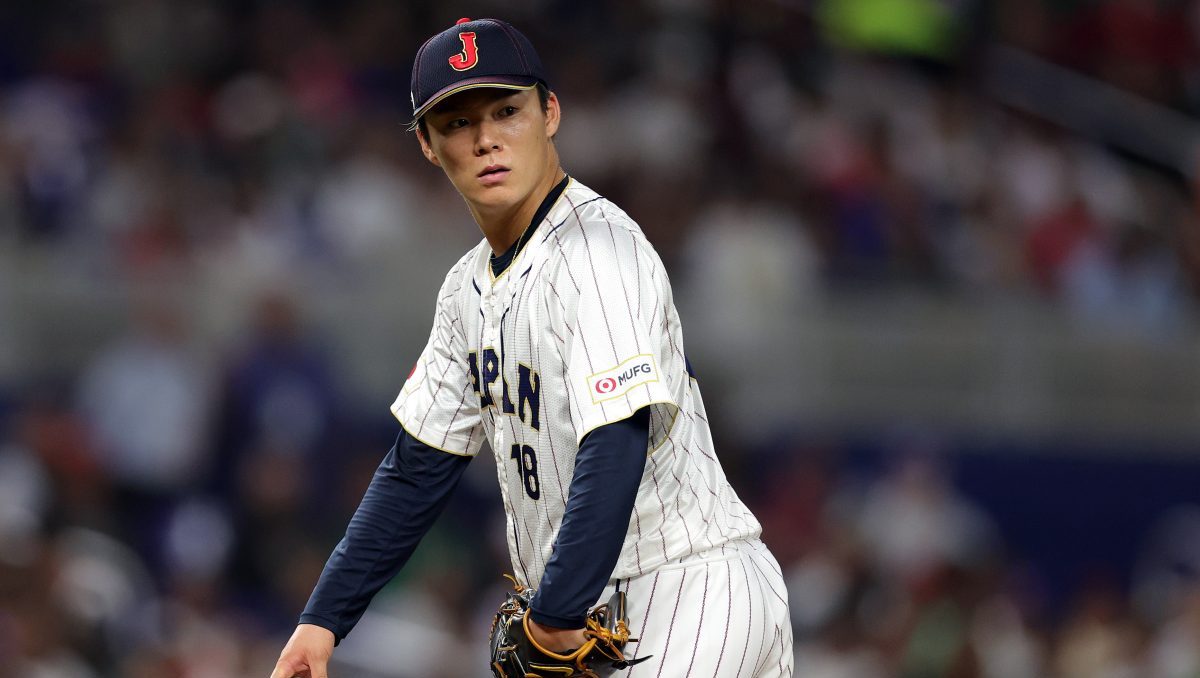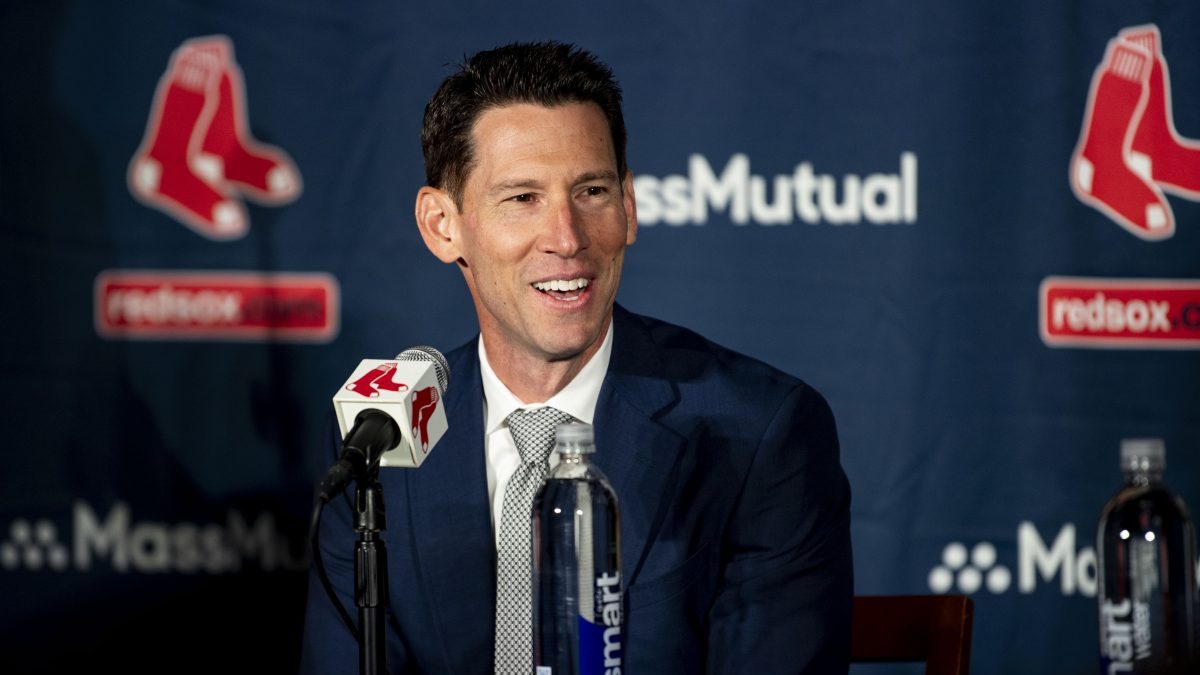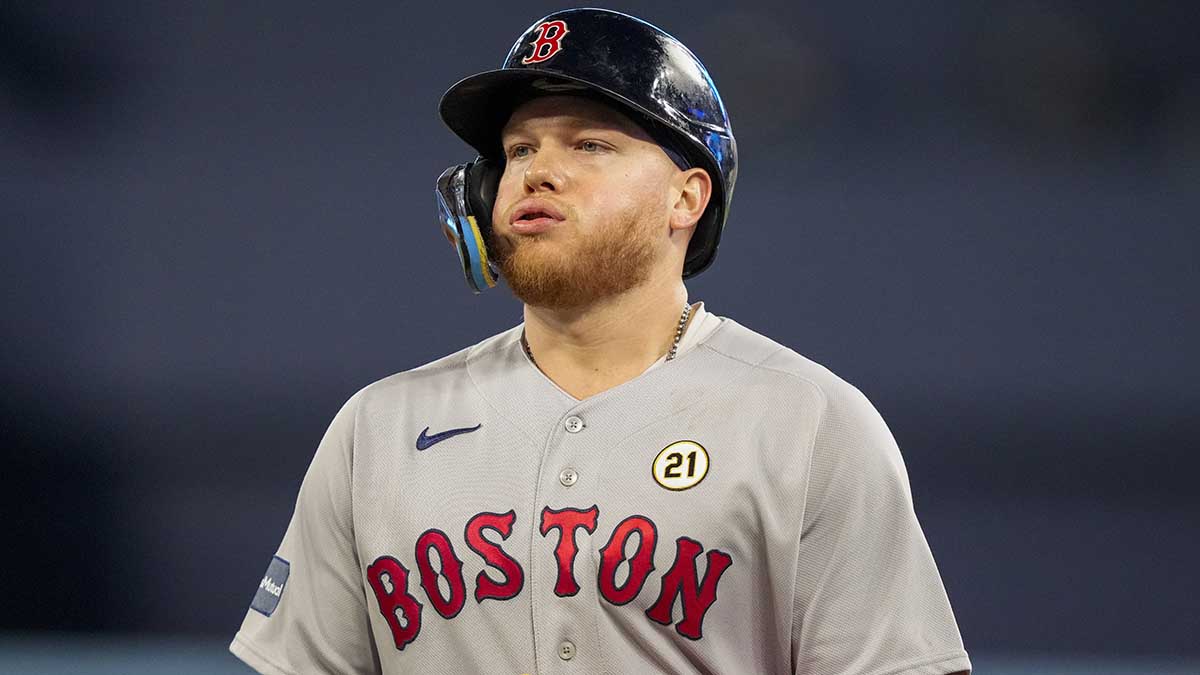The Yankees just traded for future Hall of Famer Juan Soto. The Blue Jays appear to be closing in on current best player ever Shohei Ohtani. Some might call this the nightmare scenario, and it leaves the Red Sox with two choices – accept that they're AL East also-rans, or strike back.
If Craig Breslow is as competitive as his former teammates say -- "He's got pelotas," an admiring David Ortiz noted recently -- then there's really only one proportional counterstrike in his arsenal: sign Yoshinobu Yamamoto.
It's a risk, no doubt. Some of us only this week advocated for Breslow to hit doubles this winter instead of home runs. But if you want to keep pace in baseball's toughest division – and that's before even entertaining the idea of the Orioles being sold to someone who might actually spend to improve the defending division champs – then it's time to be bold.
Stay in the game with the latest updates on your beloved Boston sports teams! Sign up here for our All Access Daily newsletter.
And that's Yamamoto.
More Red Sox coverage
With every passing day, the price tag just keeps rising. The first projections had the Japanese ace signing a six-year deal for $150 million, but now we might have to double both numbers. A 10-year, $300 million contract is very much on the table, which would normally be lunacy for a pitcher, but Yamamoto represents a special case.
Potential aces do not reach free agency at age 25, ever. The Tigers gave Eduardo Rodriguez $77 million a couple of years ago because he was only 28. The Diamondbacks didn't hesitate to hand him $80 million this week after he opted out, because even 30-year-old starters qualify as young in free agency.
Yamamoto doesn't even turn 26 until August. He could easily spend the next seven years in his prime and the three after that only slightly diminished. If your scouts and analysts believe he's a legitimate No. 1 starter, then there really isn't a number you shouldn't be willing to spend to acquire him.
Red Sox executives who lived through the Daisuke Matsuzaka era are probably flinching at the thought. He was supposed to rival Pedro Martinez for talent, but instead mostly infuriated with his unwillingness to throw strikes. Even in disappointment, Matsuzaka still won 15 games as a rookie and then finished fourth in the Cy Young voting a year later while going 18-3.
What made the Matsuzaka sweepstakes remarkable, in retrospect, was John Henry's refusal to be denied. The Red Sox won the bidding with a record posting fee of $51.1 million, Henry spending even beyond the recommendation of general manager Theo Epstein to ensure he landed his guy.
If Breslow wants Yamamoto, he's going to have to sell Henry on the idea, which is supposedly why the owner hired him in the first place. Ownership craved boldness and decisiveness, and Yamamoto certainly qualifies.
There are concerns, of course. No one knows how his game will translate to the big leagues, though a sub-2.00 ERA in each of the last three Japanese seasons bodes well. It's unclear how he'll hold up as an undersized 5-foot-10 right-hander, though a reliance on relievers in today's game means he might not be expected to throw more than five or six innings.
He'd also be ownership's second $300 million contract in as many offseasons, following last year's extension for Rafael Devers, and even rich organizations can only afford so many of those.
However, none of these issues can be considered in a vacuum. In the real world, where the Red Sox reside, the AL East is impossibly murderous. The O's just won 100 games, the Rays always find their way to 95-plus, and the Yankees and Jays aren't standing pat.
Before the Red Sox make their best pitch to Yamamoto in the coming days and weeks, they should ask themselves one question: Are they just going to absorb their beating, or are they going to do something about it?



